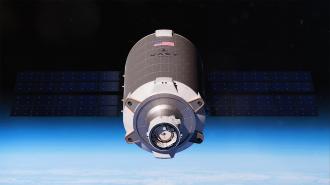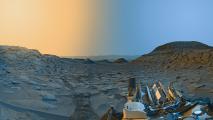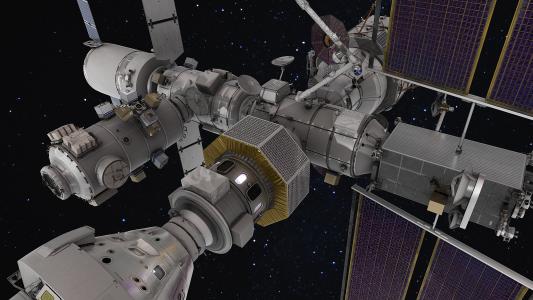Long Beach-based space startup Vast Space has signed a contract with SpaceX to launch the world’s first commercial space station as soon as 2025 — and crew it almost immediately.
“It’s a super aggressive schedule,” Jed McCaleb, the founder of Vast, told Ars Technica. “But we have a clear path for how we’re going to get there.”
The customer: The International Space Station (ISS) has served as NASA’s off-world home for more than two decades, enabling groundbreaking science that has advanced our understanding of space and improved our lives on Earth.
NASA expects to deorbit the aging ISS in 2031, though, and rather than building a replacement, the agency plans to rent space on one or more space stations owned by private companies.
That plan depends on someone actually deploying a commercial space station, though — every station to reach orbit so far has been put there by a government agency.
“We see NASA as our biggest opportunity, as our largest customer.”
Jed McCaleb
What’s new? Vast has now announced its intention to be the owner/operator of the first commercial space station by launching its Haven-1 station as soon as August 2025 via a SpaceX Falcon 9 rocket.
The next-soonest planned deployment of a commercial space station isn’t until late 2025, when Axiom Space is scheduled to launch the first module of its Axiom Station.
Rush job: Four companies, including Axiom, have already received funding from NASA to develop private space stations. Vast isn’t one of the four, and getting its station into orbit first could give it an advantage over NASA’s existing partners when it comes to securing contracts.
“We see NASA as our biggest opportunity, as our largest customer,” McCaleb told Space News. “We’re not going to send you renders or prototypes in a warehouse. We have flight hardware.”

Looking ahead: In addition to deploying Haven-1, SpaceX has also been contracted to send a Crew Dragon spacecraft carrying four people to dock with Vast’s space station soon after it reaches orbit.
Dragon will then remain docked for up to 30 days while the crew enjoys their time aboard the space station, which, at just 12 feet wide and 33 feet long, is extra cozy compared to the 356-foot-long ISS.
Vast plans to sell tickets aboard that first mission to space agency astronauts or private citizens interested for scientific or philanthropic reasons. It hasn’t revealed the cost of tickets, but those interested can apply via the startup’s website.
Going big: Vast’s long-term goal is to deploy a 328-foot-long commercial space station in the 2030s, giving NASA access to a space station closer in size to what it’s used to. The startup also has an ambitious plan to mimic the effects of gravity on the large station by spinning it.
The gravitational pull is expected to be only 17% as strong as Earth’s, but no one has ever produced any simulated gravity on a space station before, and if Vast’s plan works, the force might be enough to limit the many health issues caused by living in microgravity.
We’d love to hear from you! If you have a comment about this article or if you have a tip for a future Freethink story, please email us at tips@freethink.com.






